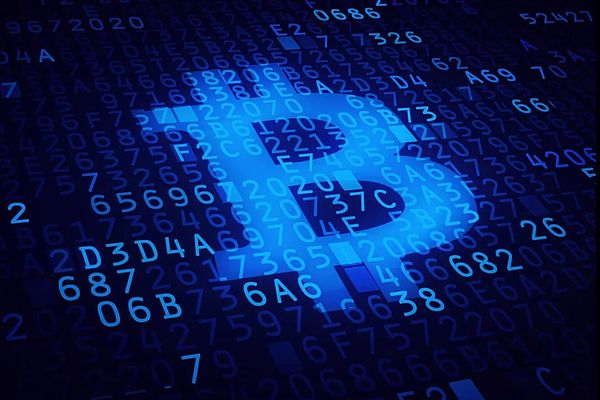Author: Shanghai High Court; Source: RWA Industry Research Institute
The concept of virtual currency was proposed in the first decade of this century. Under the enthusiastic support of many "gold diggers", its value was greatly inflated several times. Some issuers and investors of virtual currency also made a lot of money.
However, is it legal to carry out virtual currency issuance and other businesses? Is it safe to participate in virtual currency investment and other activities?
Recently, the Songjiang District People's Court of Shanghai (hereinafter referred to as the Songjiang District People's Court) concluded a service contract dispute case caused by the effectiveness of the virtual currency issuance and financing service contract.
Case Review
In 2017, virtual currencies such as Bitcoin and Ethereum experienced explosive price growth. The plaintiff, an agricultural development company (hereinafter referred to as Company X), was attracted and came up with the idea of issuing its own virtual currency and raising funds with it.
With the introduction and recommendation of the defendant, an investment management company (hereinafter referred to as Company S), Company X was more confident in the future development prospects of token issuance and financing, so it signed the "Blockchain Incubation Agreement" with Company S, entrusting Company S to prepare a "white paper" and issue tokens on the blockchain based on the most mainstream blockchain smart contract technologies such as Bit and Ethereum.
After the signing of the agreement, Company S prepared a "white paper" for Company X to help Company X achieve token issuance and financing. Before and after the completion of the "white paper", Company X paid Company S two service fees totaling 300,000 yuan as agreed.

Company X believed that all matters related to the issuance of tokens had been handed over to Company S, and was looking forward to the day when the tokens would be issued. However, to Company X's surprise, after one year, the tokens had not yet been issued. Upon inquiry by Company X, Company S said that issuing tokens required the development of a corresponding APP first, and the cost of APP development was high and did not fall within their service scope. Company X should develop the APP on its own, and Company S would only be responsible for the subsequent issuance of tokens. Company X's expectations were dashed, and it sued in the People's Court, demanding the termination of the contract and the return of the service fee of 300,000 yuan by Company S.
People's Court Judgment
The People's Court held after trial that token issuance financing refers to the financing subject raising so-called "virtual currencies" such as Bitcoin and Ethereum from investors through the illegal issuance and circulation of tokens. It is essentially an act of illegal public financing without approval, suspected of illegal issuance of token tickets, illegal issuance of securities, illegal fundraising, financial fraud, pyramid selling and other illegal and criminal activities. Therefore, no organization or individual may illegally engage in token issuance and financing activities.
In this case, neither Company X nor Company S's business scope includes content related to token issuance, and both of them stated that they do not have the qualifications to issue tokens. The tokens issued by Company X on behalf of Company S are virtual currencies, and the issuance of tokens is the main service content agreed in the Blockchain Incubation Agreement. Because the agreed service items belong to engaging in illegal financial activities, they violate relevant financial regulatory regulations and disrupt the economic and financial order. Therefore, the Blockchain Incubation Agreement involved in the case is invalid.
The contract involved in the case is invalid due to violation of mandatory legal provisions. After the contract is invalid or revoked, the property obtained by the contract shall be returned. The party at fault shall compensate the other party for the losses suffered as a result. If both parties are at fault, they shall bear the corresponding responsibilities respectively. In this case, both Company X and Company S are at fault for the invalidity of the Blockchain Incubation Agreement. The People's Court comprehensively considered the faults and losses of both parties and ordered Company S to return Company X's service fee of 250,000 yuan, and did not support the remaining claims of Company X.
After the judgment, neither the plaintiff nor the defendant appealed, and the judgment has now come into effect.
Judge's Statement

Sun JieSongjiang District People's CourtCommercial TribunalSecond-level Judge
Many people, like the parties in this case, have raised funds to launch virtual currency issuance and other businesses in order to take advantage of the new "gold rush", or have reached project cooperation with other companies in order to obtain technical support, but have fallen into contract disputes because the projects did not proceed as expected. However, there are great legal risks in virtual currency-related business activities. If you blindly enter the market without sufficient market research, you will end up with nothing like Company X.
The judge hereby reminds that you should be highly vigilant about the legal risks related to virtual currency, be cautious in participating in virtual currency investment transactions, do not privately launch virtual currency issuance business, strictly abide by the legal provisions of the financial market, and jointly maintain my country's financial security and stability.
1. There are legal risks in participating in virtual currency investment transactions
In my country, virtual currency does not have the same legal status as legal currency. As a virtual commodity, it has property value. Although my country's laws do not make clear provisions on virtual currency, regulations issued by the People's Bank of China and other departments regulate virtual currency-related business activities. Relevant regulations clearly state that virtual currency-related business activities are illegal financial activities, and that virtual currency-related business activities such as the exchange of legal currency and virtual currency, token issuance and financing, etc. are suspected of illegal financial activities such as illegal sale of token tickets and unauthorized public issuance of securities, which are strictly prohibited and resolutely banned in accordance with the law.
There are legal risks in participating in virtual currency investment transactions. Any legal person, non-legal person organization or natural person who invests in virtual currency and related derivatives in violation of the mandatory provisions of laws and regulations shall have the relevant civil legal acts invalid, and the losses caused by this shall be borne by the person himself. Therefore, although it is not illegal for an individual to simply hold virtual currency, commercial entities cannot participate in virtual currency investment transactions or even issue tokens on their own at will. Once the bottom line of civil and criminal legal principles and rules is touched in the transaction behavior, the loss will be borne by the person himself, or even suspected of committing a crime.

II. Why are virtual currency-related business activities strictly regulated?
Virtual currency, as a virtual commodity, has property attributes and is not prohibited by law. So why are virtual currency-related business activities strictly regulated and even clearly defined as illegal financial activities?
The prevalence of virtual currency trading speculation such as Bitcoin will not only disrupt the economic and financial order, but may also become a payment and settlement tool for illegal and criminal activities, breeding illegal and criminal activities such as money laundering, illegal fundraising, fraud, and pyramid schemes. On the one hand, virtual currency will undermine financial order and endanger financial security. For example, issuing financing with virtual currency is actually an unauthorized illegal public fundraising behavior, which may be suspected of unauthorized public issuance of securities and illegal fundraising. On the other hand, allowing virtual currency to enter the financial market, such as conducting legal currency and virtual currency exchange, and exchange transactions between virtual currencies, will damage the public interest. The anonymity and decentralization of virtual currency itself make it very easy for illegal exchanges to use it, becoming a medium for illegal or even criminal behavior, seriously endangering the property safety of the people. Therefore, laws and regulations always maintain a high-pressure crackdown on virtual currency trading speculation.
Third, the judge reminded: virtual currency contracts may be invalid due to violation of mandatory provisions of laws and regulations
When disputes arising from virtual currency trading-related contracts are brought to the people's court, the people's court will actively review the validity of the contract in accordance with its authority. When reviewing in accordance with the relevant provisions of the Civil Code of the People's Republic of China on the effectiveness of civil legal acts, the judge needs to confirm whether the relevant activities are seriously illegal, that is, whether the content of the contract violates the mandatory provisions of laws and regulations. For disputes related to virtual currency trading contracts, it is necessary to review whether the contract violates the legal currency issuance system, financial market management laws and regulations, and other invalid situations.

If the contract is invalid, the property obtained by the contract shall be returned; if it cannot be returned or there is no need to return it, it shall be compensated at a discount. The party at fault shall compensate the other party for the losses suffered as a result. If both parties are at fault, they shall bear the corresponding responsibilities respectively. Therefore, for enterprises and individuals, blindly participating in virtual currency transactions may not effectively protect their rights.
Take this case as an example. The service contract between X Company and S Company originally contained provisions on liability for breach of contract. If the contract was valid, in the event of fundamental breach of contract by S Company, X Company could not only request the termination of the contract and return of the payment already made, but also claim liquidated damages and other compensations in accordance with the contract agreement. However, because the contract was invalid, X Company could only claim the return of the payment already made, and because it was also at fault for the invalidity of the contract, it had to bear the corresponding liability.
Legal provisions
1. Civil Code of the People's Republic of China
Article 153 Civil acts that violate the mandatory provisions of laws and administrative regulations are invalid. However, this does not apply if the mandatory provisions do not invalidate the civil act.
Civil acts that violate public order and good morals are invalid.
II. Announcement on Preventing Risks of Token Issuance and Financing
I. Accurately Understand the Essential Attributes of Token Issuance and Financing Activities
Token issuance and financing refers to the financing subject raising so-called "virtual currencies" such as Bitcoin and Ethereum from investors through the illegal issuance and circulation of tokens. It is essentially an act of illegal public financing without approval, and is suspected of illegal issuance of token tickets, illegal issuance of securities, illegal fundraising, financial fraud, pyramid schemes and other illegal and criminal activities. The relevant departments will closely monitor the relevant developments, strengthen the work coordination with the judicial departments and local governments, strictly enforce the law in accordance with the current working mechanism, and resolutely govern the market chaos. If suspected criminal issues are found, they will be transferred to the judicial authorities.
The tokens or "virtual currencies" used in token issuance and financing are not issued by the monetary authorities, do not have monetary attributes such as legal compensation and compulsion, do not have the same legal status as currency, and cannot and should not be circulated and used as currency in the market.
II. No organization or individual shall illegally engage in token issuance and financing activities
From the date of this announcement, all types of token issuance and financing activities shall be stopped immediately. Organizations and individuals that have completed token issuance and financing shall make arrangements for liquidation, reasonably protect the rights and interests of investors, and properly handle risks. Relevant departments will seriously investigate and punish token issuance and financing activities that refuse to stop and illegal and irregular acts in completed token issuance and financing projects in accordance with the law.
III. "Notice on Further Preventing and Dealing with the Risks of Virtual Currency Trading Speculation"
I. Clarifying the Essential Attributes of Virtual Currency and Related Business Activities
(I) Virtual currency does not have the same legal status as legal tender. Virtual currencies such as Bitcoin, Ethereum, and Tether have the main characteristics of being issued by non-monetary authorities, using encryption technology and distributed accounts or similar technologies, and existing in digital form. They are not legal tender and should not and cannot be circulated and used as currency in the market.
(II) Virtual currency-related business activities are illegal financial activities. Virtual currency-related business activities such as conducting legal currency and virtual currency exchange business, virtual currency exchange business, buying and selling virtual currencies as a central counterparty, providing information intermediary and pricing services for virtual currency transactions, token issuance financing, and virtual currency derivative transactions are suspected of illegal financial activities such as illegal issuance of token tickets, unauthorized public issuance of securities, illegal operation of futures business, and illegal fundraising. They are strictly prohibited and resolutely banned in accordance with the law. Those who conduct related illegal financial activities that constitute a crime shall be investigated for criminal responsibility in accordance with the law.
(III) Overseas virtual currency exchanges providing services to residents in my country through the Internet are also illegal financial activities. Domestic staff of relevant overseas virtual currency exchanges, as well as legal persons, non-legal organizations and natural persons who knowingly or should have known that they were engaged in virtual currency-related businesses and still provided them with marketing, payment settlement, technical support and other services, shall be held accountable in accordance with the law.
(IV) There are legal risks in participating in virtual currency investment and trading activities. Any legal person, non-legal organization or natural person who invests in virtual currency and related derivatives in violation of public order and good morals shall have the relevant civil legal acts invalid, and the losses caused by this shall be borne by themselves; if they are suspected of disrupting financial order and endangering financial security, they shall be investigated and dealt with by relevant departments in accordance with the law.
 Brian
Brian
 Brian
Brian Joy
Joy Miyuki
Miyuki Alex
Alex Joy
Joy Brian
Brian Weiliang
Weiliang Miyuki
Miyuki Alex
Alex Brian
Brian